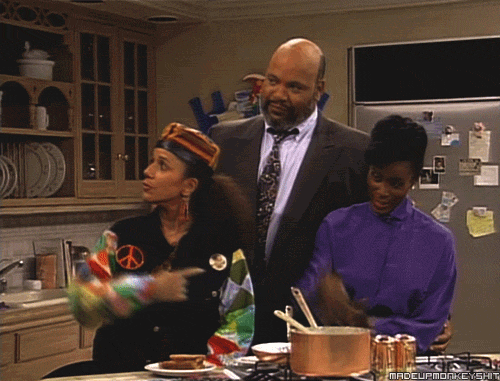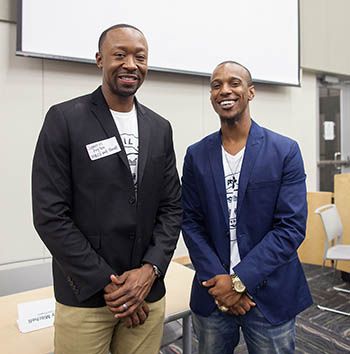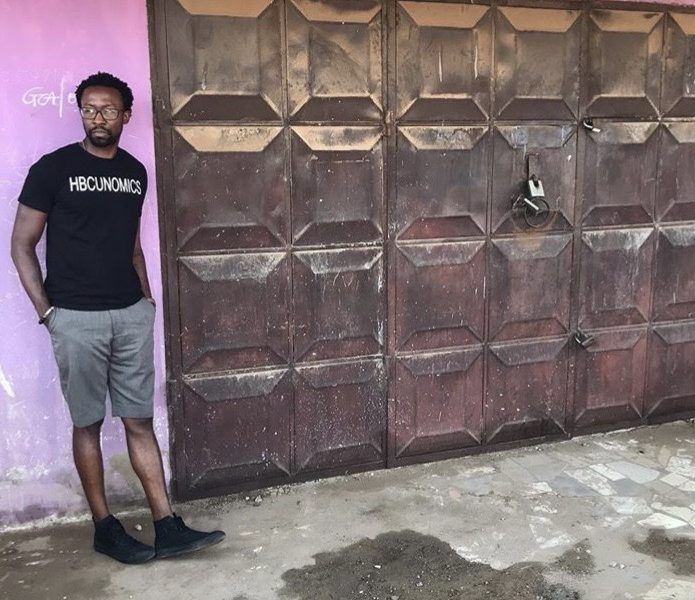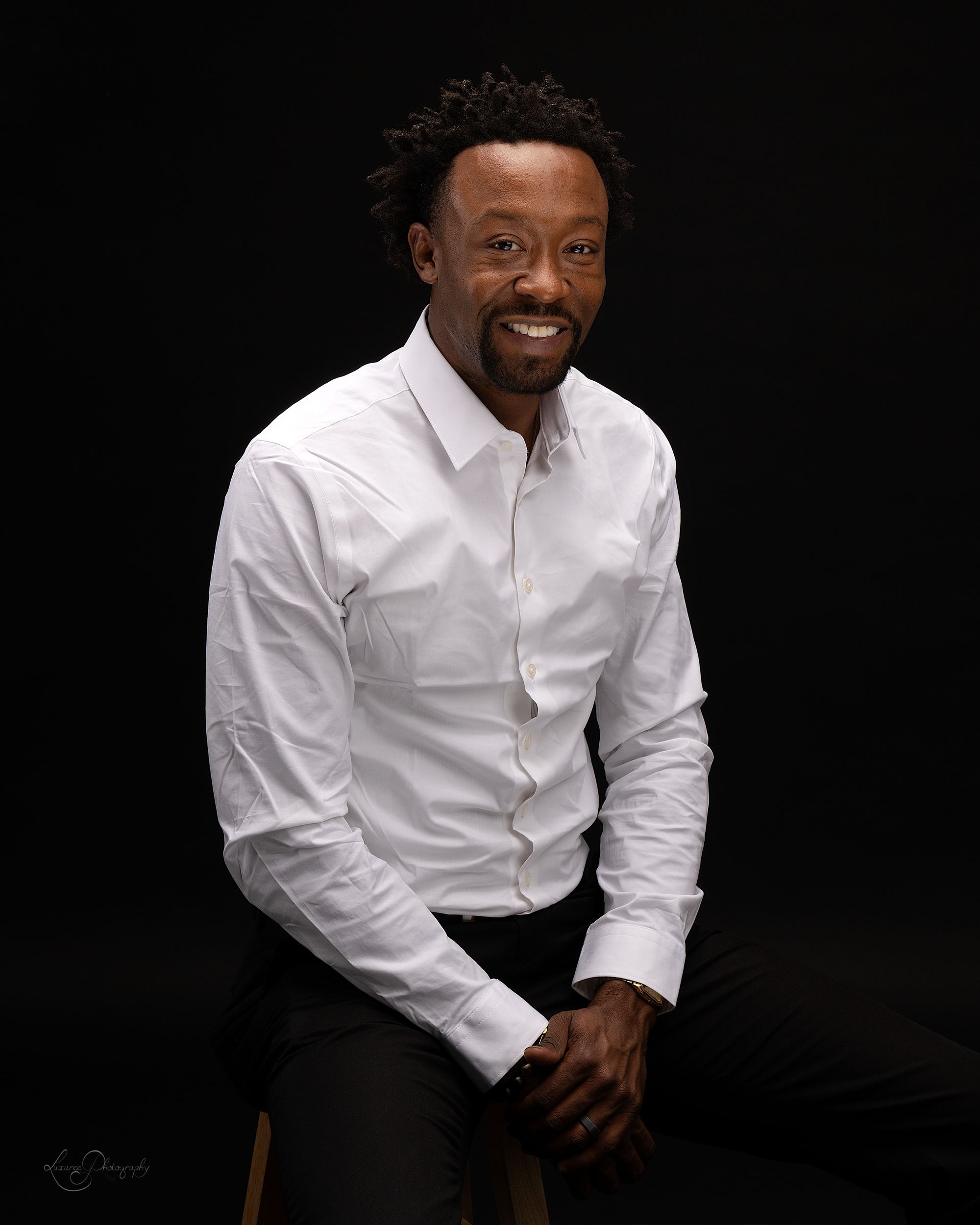"I am 400% for the culture, let it be known" - Jamerus Payton
Let’s be real.
You and I both know that mainstream media doesn’t get us.
We see it happen all the time with publications sharing racially insensitive articles, or media companies publishing ads from brands who are culturally appropriating our culture in their advertisements.
The media is one of the most powerful industries in our society and this is one of the reasons why Black media is critical for our community. Without our own media platforms, we are placing our stories and our futures into the hands of other people who don’t fully understand our struggles, needs, and wants as a people. We must do our part in not only supporting independent Black media platforms, but also in creating more Black-owned media that will reflect and support the needs of our communities.

HBCU Wallstreet, founded by Jamerus Payton and Torrence Reed, was created to do just that. Since its inception, HBCUs have played a vital role in uplifting and educating our people, so we must protect these institutions, and their students and alumni at all costs. Recently, we caught up with Jamerus and we chopped it up about his journey into building HBCU Wallstreet, why Black media matters more than ever, and his tips for aspiring or new Black media founders.
Started on IG now we here
In 2015, Torrence and I launched HBCU Wallstreet as a page on Instagram, and focused on economic empowerment, financial education, and financial independence within the HBCU community. On HBCU Wallstreet’s IG page, we would highlight the business accomplishments and success stories of people who graduated from HBCUs like Reginald F. Lewis, Oprah, Janice Bryant Howroyd, Earl Graves, Sr., or Rosalind Brewer just to name a few. From the start, our goal was to use these stories to inspire the next generation of HBCU graduates, leaders, entrepreneurs, and business men and women.

Very quickly within the first few months, our website started doing really well. Community was always really important for us, so me and my cofounder Torrence created a GroupMe to connect everybody that was following HBCU Wallstreet on IG. Within that group, it kind of evolved into its own little thing. In that GroupMe, we wanted to address the financial and economic inequalities that was affecting our people. Money is something that, oftentimes, is not discussed in many Black households, so we wanted to create a platform that would positively contribute to that topic and have an impact on our community.
In the GroupMe, we started seeing people ask questions like, “How can I boost my credit score? What are some good investments” and more. The GroupMe became really popular, and got up to over 10,000 people.
We eventually took the group to Slack, and we kept on growing from there. Around this time, we started thinking, what would happen if Slack or Instagram shut down and we’re really just a social media page? We knew that just being an IG page wouldn’t cut it, so we ended up building our own platform, our on website, so that we could grow faster and more strategically with our community.
Niche markets are in
Right before we launched HBCU Wallstreet, my cofounder Torrence and I had just finished up with our first company that we had worked on for about 3 years. Once that company had dissolved, we ended up partnering with Travis from HBCU Pridenation on some work.
During that time, I ended up meeting Daymond John at an entrepreneur event and pitched him. It was crazy too; it was the first time we had ever pitched and we were so green. We were so rehearsed up and sounded like robots, but we did get some feedback from Daymond that stuck with me. After he heard my pitch he told me, “What you all are doing is very niche. A lot of people aren’t there yet, and aren’t ready yet.”
As he continued, he talked to me about the importance of niche markets, and his words stayed on my mind. After that conversation, I kept thinking more about the HBCU market, and knew that HBCU Wallstreet was more critical than ever.
The way I looked at it, I'm about the culture, I love Black people, I’m from an HBCU myself. I noticed that the HBCU community was the number one driver of the Black economy and the Black dollar. I felt that it would be so dope if the same people in my community, our community, understood what to really do with our money.
Just think about it.
What if we went from being consumers to producers, or to becoming more informed consumers?
What if we could educate our people on what money is and what it ain’t?
What if we could really teach our community how to be more responsible with their dollars?
That right there made the idea of HBCU Wallstreet more important and it became the inspiration to drive our platform forward.
Recommended: Pitch your startup at the first and only practice pitch event for Black founders. #forusbyus

Be 400% Black. Blackity Black.
In March 2019, I left my corporate job. Everything prior to then, including HBCU Wallstreet, I was doing on the side. Right after I left my job, I started a food truck business with my family called Carolina Chicken & Waffles, and also started a life insurance company (I was still working on HBCU Wallstreet, life was crazy). Even though I was doing a lot, I kept at it because I was building something for my people and I wanted to make sure my culture benefited.
I am 400% for the culture, let it be known.
Anytime I'm speaking on any platform, I don't hide it that I'm about the culture, and that I’m for Black people, you know what I mean? I’ve felt that there has been such a disconnect in the information and in the content in the media space, so I've had to make sure my people are first by using my talents and knowledge. The caveat of that is that for us, the stronger Black businesses are, the more competitive that makes the whole economy, whether it's your local state or the world. The stronger we are everybody benefits from that.
But it's so crazy too because it’s a weird dichotomy. Just look at all of the systems, the roadblocks, and the red tape that's been put in place to hinder us, and for others to make capital off of us. It feels like when we start getting empowered, or start standing on a higher level, obstacles are thrown our way.
However, when this happens to you, stick to your mission and be unapologetic about why you're here and what you want to create. Don’t be afraid to be unapologetically Black either and create something for us because God put that idea on your mind, in your heart for a reason.
I like to tell people, God ain’t man (and when I say ain’t man, I mean he’s not like us). God is not going to play with your mind or heart, so if it’s on your mind, it’s from God, and it’s a gift from God. In due time, it's gonna make sense when you act on what God has placed on your mind. The right people that are supposed to mess with you, and that’s supposed to be critical to what you’re building, will show up because what you are doing is from Him.
You ain’t for everybody (and that’s alright)
When you're building your company, it’s going to get hard but don't let your ego get the best of you. Even when shit gets real, you can’t give up because it’s bigger than you. You have to ask yourself, "Did you do it for you, or for your people?."
In whatever you’re building, your mission has to be bigger than you.
As an entrepreneur, you have to be consistent and grind day after day. Eventually, things are going to open up, and just like I said earlier, the right people will eventually come around and things will fall together.
No matter what, you can't let insecurities or doubt trip you up.
Even now, I’ve never been a person who has liked public speaking. I’m from eastern North Carolina, and no matter how educated I am, that eastern North Carolina comes out, and sometimes I’ll f up a word, or really not say it like other people, and it would get to me.
I remember it would affect me so hard that I started worrying too much about "speaking right", instead of remembering how qualified I was to be there speaking at these events in the first place.
One day it hit me, and I remembered, that I'm not for everybody, and it’s cool because I'm not supposed to be for everybody and the same goes for you.
Your Blackness, and what makes you YOU, is your power.
Speak it, dream it, and do the work
I was telling my mentee the other day that a lot of the things that I have going on between HBCU Wallstreet, my food truck, and my book HBCUnomics are starting to unfold because I was consistent and I spoke of what I wanted.

I remember sitting in my apartment when I was working in Dallas, and on a white piece of paper, I drew out and wrote down some of things I wanted to one day accomplish from having a business brand, being in the food and tech space, and even having a family brand.
All of that overtime has come to life.
This goes back to what I was saying earlier. Be consistent and intentional every day. Think about what you want to do, write it down, and go for it. Don’t let your ego or what looks like a failure get to you. Keep your head down and do the work, and you’re going to look up one day and see that everything you dreamt about is here.
When you go high, take your people with you
One of the other reasons why we felt it would be dope to focus on HBCUs for our brand, is because we always felt like if we position our company right, this could really help our community of people.
I'm from eastern North Carolina, and when I go back home now, I look around and see nothing but opportunity among my people. It’s always been important for us to do the work to make sure that our community is being sustained or that we’re helping us build these big companies. My job as Jamerus is to go back to my people, share what I learned, and tell sis or bro to take my knowledge and my network, and to build too.
We can all eat
As you’re building your media company, you’ll start to see other companies that are considered your competitor doing their thang, but keep going anyway. You don't have to take from anybody to build your dream, and don’t have to stop their hustle either.
There can be a whole bunch of the same thing, even in media. Remember, what’s for you is for you, and what’s for me is for me.
There is so much of an abundance of money, energy, and ideas that are everflowing and we should support that.
We should see more Black-owned media platforms out here moving forwad. The more of us that’s out here doing the work makes it better for not only you, but for our people now and in the future days to come.

